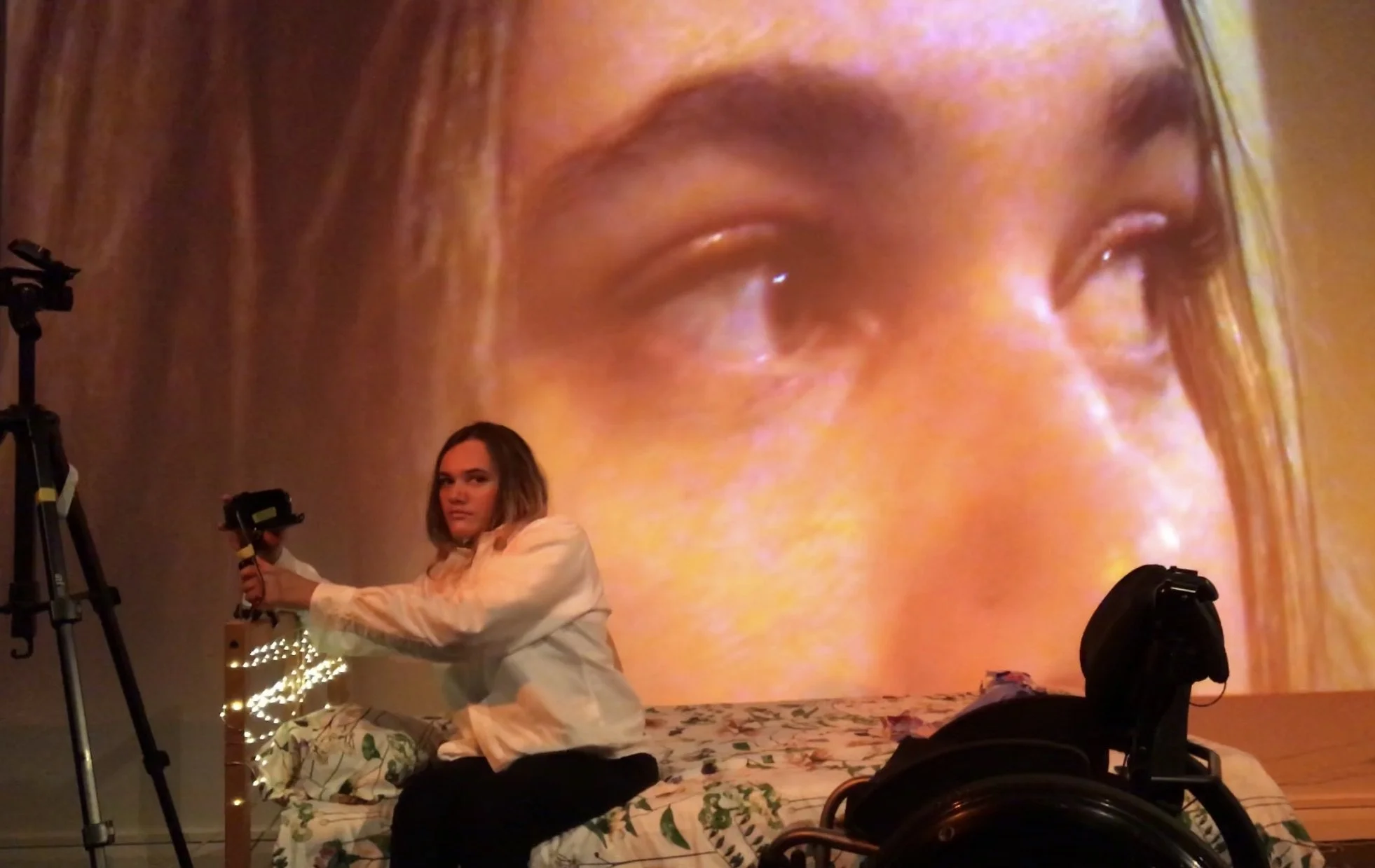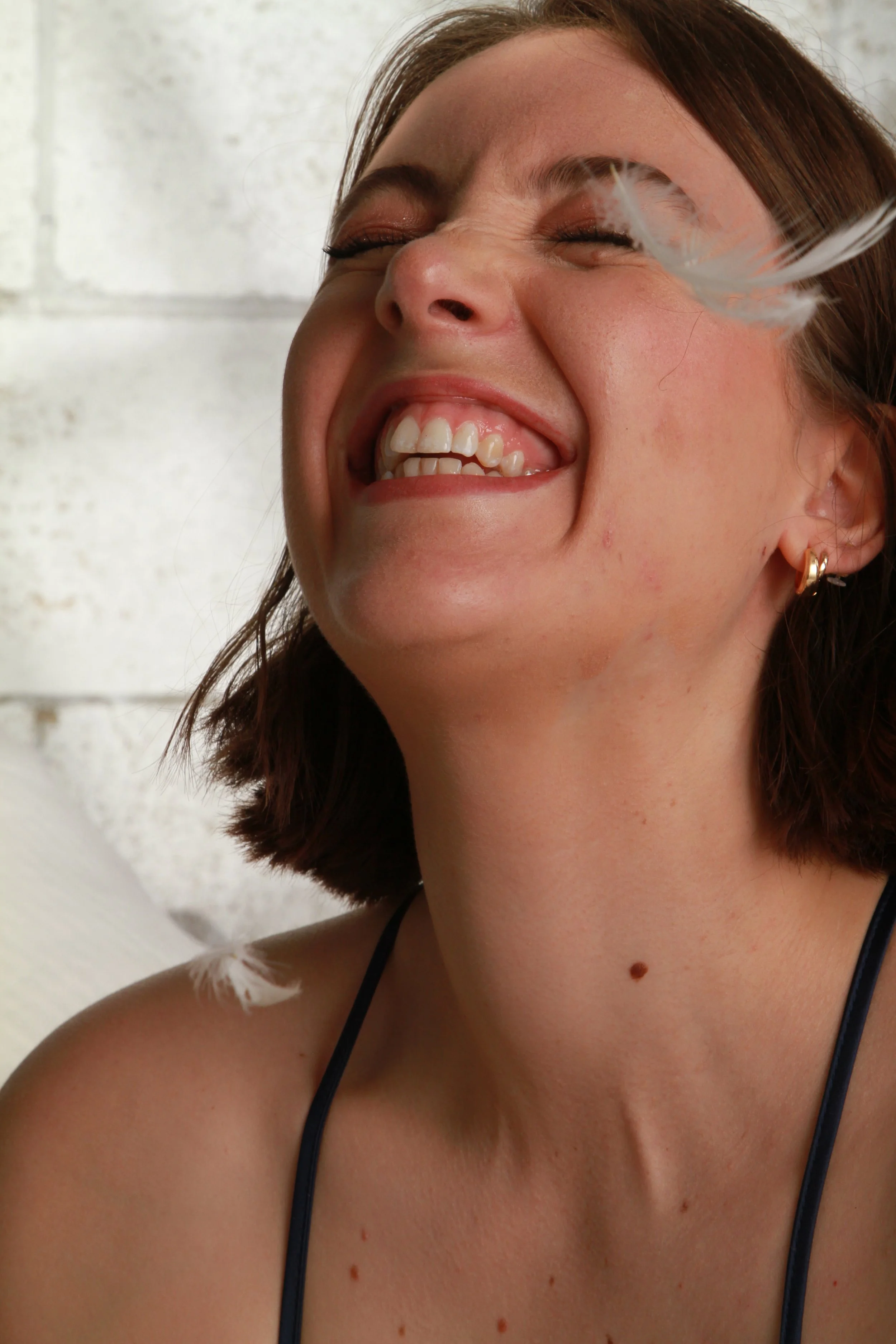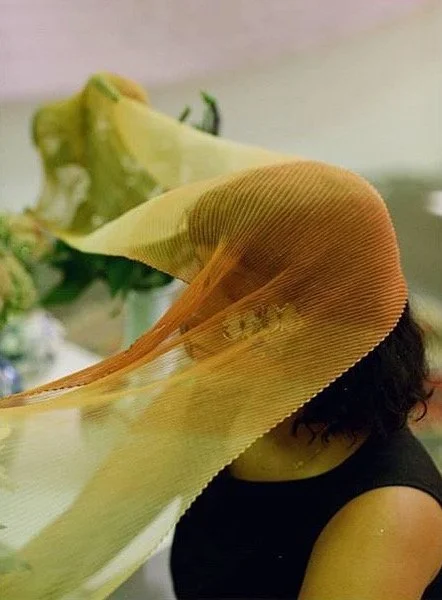Jamila Main
Jamila Main is a queer, disabled artist, and an ambulatory wheelchair user, whose candid, joyful, and intimate work delves into the nuances of disability, queerness, and tender tension. Jamila was a Carclew Fellow and Sharehouse Resident, a researcher at Back to Back Theatre; is a Co-Chair of the Equity Diversity Committee; and sits on the Equity National Performer’s Committee, an Advisor for Australian Plays Transform, and a disability consultant and advocate.
Alongside being an artist, Jamila is an actor, playwright, and disability consultant and has worked with organisations including Sydney Theatre Company, Darlinghurst Theatre Company, Malthouse Theatre, Adelaide Festival, State Theatre Company of South Australia, Adelaide Cabaret Festival, Vitalstatistix, Midsumma Festival, and ActNow Theatre.
Read more…
Jamila Main, Pillow Talk, 2022
10 minutes 47 seconds, single-channel video, sound.
For Conductive Site.
Access Statement
Pillow Talk is a 10 minute single-channel video work.
Visual Description
Jamila, a slender white person with light brown hair in a bisexual bob, lies under white sheets in bed. Jamila wears a navy blue nightie. By the end of the video, Jamila has moved from lying on their back to grimacing in pain on their stomach.
Captioned Content Notes
Brief mention of death, references to drugs and medication, mild references to consensual and non consensual pain infliction and BDSM coded language.
Transcript
A PDF transcript of spoken text in Pillow Talk can be viewed here.
Concept and Performance: Jamila Main
Director: Ruby Allegra
Producer: Pillow Fight
Makeup and Videography: Ruby Allegra
Special thanks to Nory Saudie.
I made this work in my bed on unceded Kaurna Yerta in Tandanya (so called Adelaide), on unceded Wurundjeri and Bunurong land in so called Melbourne. I pay my respects to Kaurna and Wurundjeri people, storytellers, and Elders. I extend that respect to the Indigenous people, storytellers, and Elders who are watching this, and to everyone whose land this work is watched on. I recognise my disabled ancestors and peers, whose activism, fight, and sacrifices gave me the rights I have today. I promise to continue their work to make the world a more accessible and safe place for my disabled descendants.






